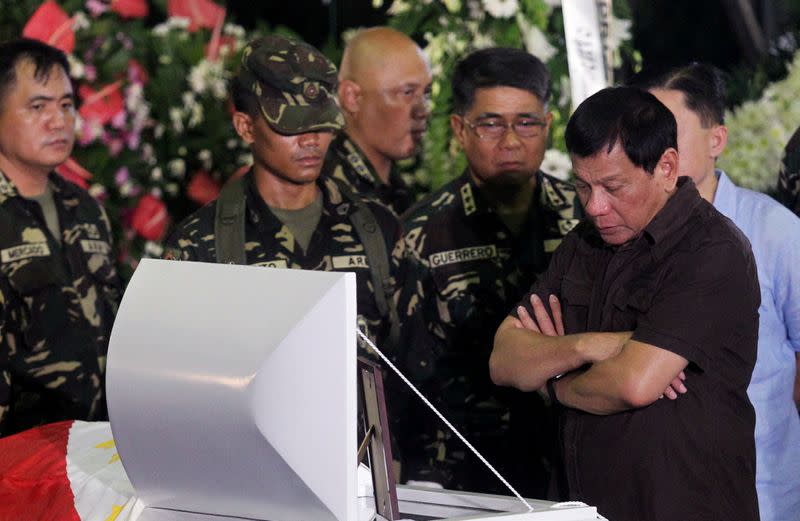GENEVA (Reuters) – The United Nations on Tuesday condemned the killing by the Philippine police of nine activists in weekend operations against alleged insurgents and urged authorities to avoid rhetoric that could lead to human rights violations.
Human rights groups have accused President Rodrigo Duterte of encouraging a crackdown on activists to silence dissidents and target his detractors, under the pretext of stepping up counterinsurgency operations against Maoist rebels.
His government said Sunday’s killings were legal and legitimate operations, but promised a full investigation.
“We are deeply concerned that these latest deaths indicate an escalation of violence, intimidation, harassment and ‘red marking’ by human rights defenders,” said UN human rights spokeswoman Ravina Shamdasani at a press conference in Geneva .
An influential religious group on Monday expressed alarm over the murders and concern about the “red label”, or labeling opponents as communists or terrorists to justify how to target them.
Human rights groups said those killed in Sunday’s raids were activists, not combatants.
Their deaths came two days after Duterte told security forces that they could kill Communist rebels if they were holding a gun, and “ignore human rights”.
Activists said the raids resembled thousands of deadly police operations under Duterte’s bloody drug crackdown, in which police said all victims were armed and resisted arrest.
Critics accuse Duterte of openly encouraging the police to kill suspected drug offenders. Your office rejects this.
Shamdasani urged the police to “take urgent measures to prevent the use of excessive force” and the government and security forces to “refrain from rhetoric that could lead to violations”.
Shamdasani said that an investigation should be “conducted with a view to accountability”.
“The fact is that the majority of perpetrators of these human rights violations are still enjoying impunity today,” she said.
(Reporting by Stephanie Ulmer-Nebehay in Geneva; Writing by Karen Lema; Editing by Martin Petty)
